Israel has long been an international leader in unmanned aerial vehicles (UAVs) and drone technology, whether it’s utilizing its military expertise to develop defense drones and emergency response flying vehicles or employing autonomous drone solutions for the greater good, like eradicating malaria in sub-Saharan Africa.
Last month, the country launched the fourth phase of its ambitious national drone initiative, an eight-phase pilot that aims to test operational capabilities for UAV use and create a network that can integrate aerial services through drones. During the fourth phase, flights will take place over urban areas “to integrate the use of drones in routine activities such as transportation of basic products, first aid; deploying a drone attached to a vehicle for real-time monitoring of traffic movement with AI-based elements that can provide forecasts, and much more.”
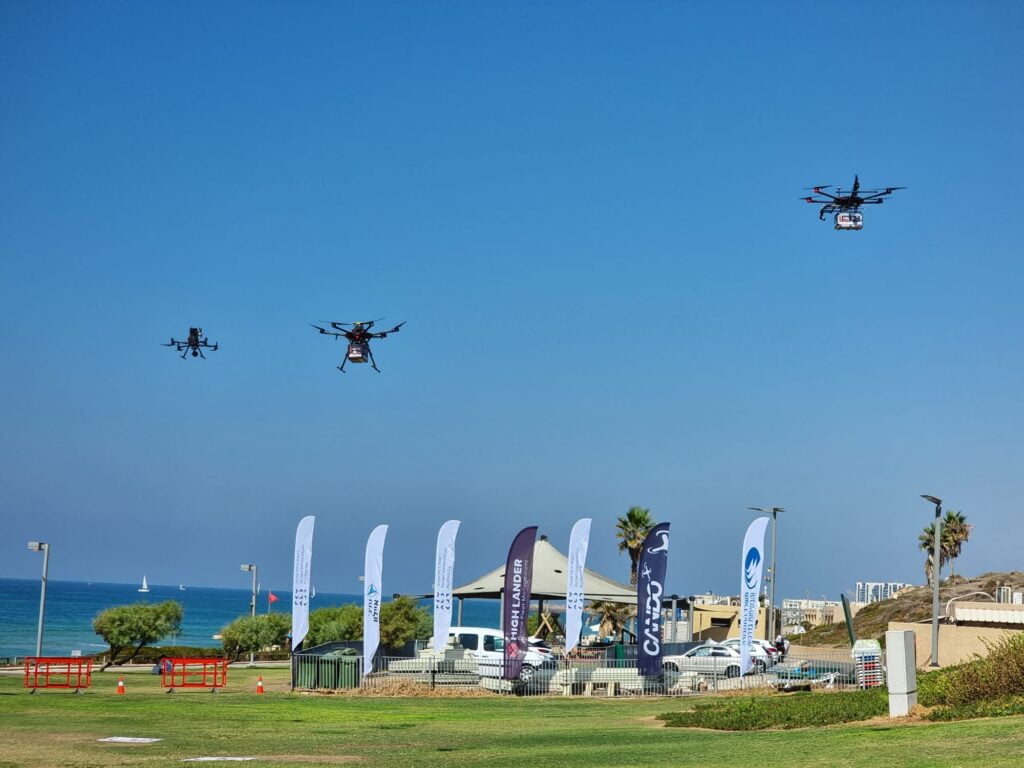
As the drone services market continues to grow exponentially – Business Insider predicts the $4.4 billion industry in 2018 will reach $63.6 billion in 2025 – Israel has become a UAV powerhouse and a hub of drone innovation, meeting the surge in demand across a variety of industries.
“Up until a few years ago, Israel was the number one global drone exporter in the world,” says Yariv Bash, CEO and co-founder of drone delivery company Flytrex, noting the country now closely trails the US.
“I can tell you that drones are completely different now in every aspect,” he adds. “You have a major drone industry here, just like you have a lot of things come out of Israel.”
With nearly 60 drone startups in the Israel tech ecosystem, according to Start-Up Nation Finder, it’s companies like Flytrex, and Percepto, a firm developing on-site drone solutions for critical infrastructure inspection and monitoring, that have helped Israel soar to new heights in 2021.
Flytrex
Israeli firm Flytrex had a big year in 2021 and they have the viral TikTok videos to prove it. One short clip features Starbucks being dropped to a North Carolina resident by the company’s impressive drone delivery service. It has 2.3 million views.
The drone company, which has been delivering food and beverages to parts of North Carolina, received approval from the Federal Aviation Administration (FAA), the US transportation agency that regulates all aspects of civil aviation, to expand its flight radius within one nautical mile and reach some 10,000 more households in the state. Flyytrex will be permitted to fly its drones within one mile of its operating stations in North Carolina cities Fayetteville, Raeford, and Holly Springs. Deliveries will continue to be made with Causey Aviation Unmanned, the company’s delivery partner in the area.
The Israeli company has been working with the North Carolina Department of Transportation since 2018 as part of the FAA’s UAS Integration Pilot Program (IPP).
“This approval from the FAA will allow us to cater to the growing demand for fast and efficient on-demand delivery in suburban America,” Flytrex CEO and co-founder Yariv Bash said in a statement.
“Today we’re actually operating the largest home drone delivery service in the US,” Bash tells NoCamels in a Zoom interview, “Federal approval is the holy grail,” he says, “With regulations, it’s not zero to one, it’s an ongoing process. So as we’re on our way to type certification, we’re already getting approvals that no one else has gotten to date in terms of backyard drone delivery.”
For Flytrex, FAA approval also means opening more locations, more stations, and increasing deliveries in each of these locations. To use Flytrex, customers in North Carolina just need to open an app, place an order, and within 15 minutes, a drone will be hovering above the location (usually a field or backyard.) The drone releases a cable with a Flytrex delivery box or bag attached. Bash says cable returns the drone, and the entire process is faster and greener than a human courier.
Sign up for our free weekly newsletter
SubscribeFlytrex has expanded to operating three drone delivery services in North Carolina and doing deliveries seven days a week to thousands of backyards. They’ve also raised a significant $40 million round from investors like Israeli active crowdfunding platform OurCrowd and Israeli venture capital firm BRM Group.
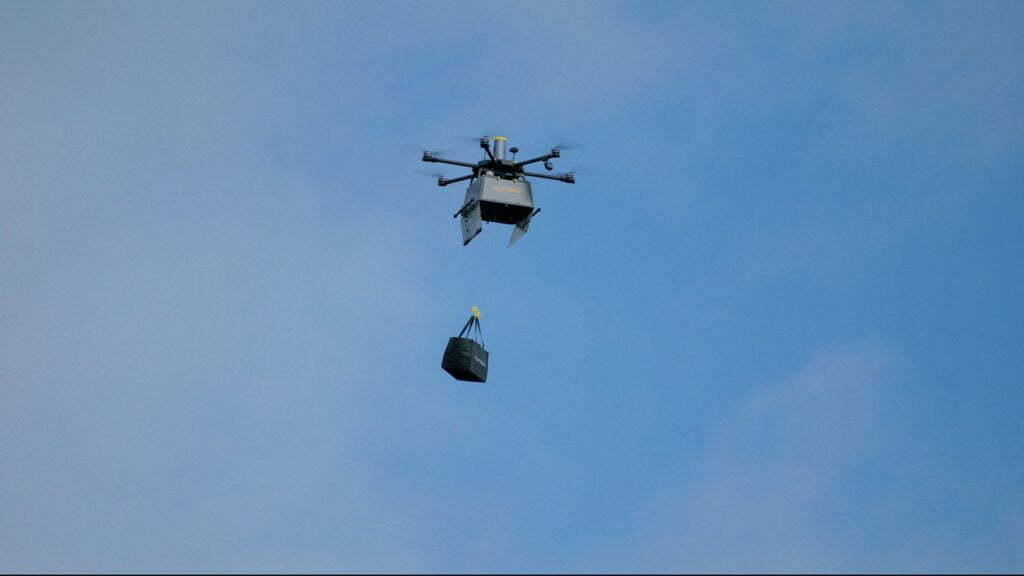
Bash says 2022 is going to be an even bigger year for Flytrex in terms of expansion throughout the US. While he wouldn’t go into detail as to which states would take part in Flytrex drone delivery services in the coming year, he mentioned a partnership with Brinker International, the US company that owns casual dining chain Chili’s and Maggiano’s Little Italy restaurant chain for drone deliveries, and a partnership with El Pollo Loco, the first quick-service restaurant to test drone delivery in the US, located in California.
Flytrex will also continue its partnership with US retail giant Walmart. In September 2020, the drone company began a pilot project delivering grocery items from Walmart in Fayetteville and Raeford, North Carolina to test whether drones could safely, quickly, and conveniently deliver items to customers. The pilot, which took off as COVID-19 swept the US, was a success and the company’s FAA approval can make those deliveries available to more homes.
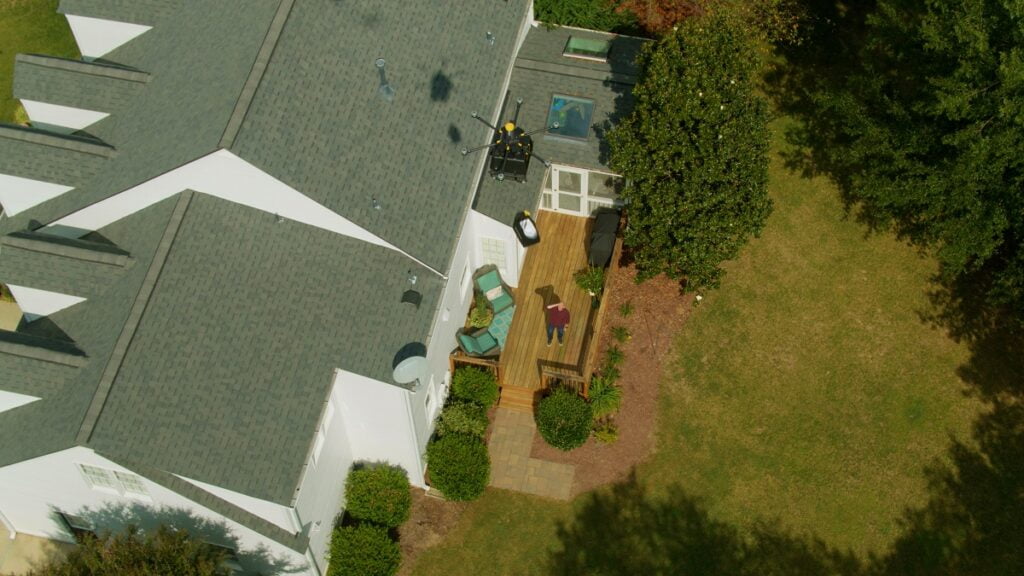
Founded in 2013 by Yariv Bash and Amit Regev, Flytrex developed technology used in a drone delivery service that quickly transports food and consumer goods to clients. Drones can be equipped with different-sized containers that can carry anything from pizza to toys to six packs of beer. The service first began in Iceland’s capital Reykjavik, where it expanded to at least 13 routes.
Percepto
Founded in 2014 by Dor Abuhasira, Percepto originally targeted sports enthusiasts seeking to capture footage of themselves without physically holding a video capturing device. The company eventually moved on to developing safety drones and robots that allow autonomous inspection and monitoring at industrial facilities without human interference. Today, Percepto says its Sparrow drone is one of the most deployed solutions on the market and the most ruggedized drone available, handling various payloads and able to handle most tasks requested by clients. During the COVID-19 pandemic, Sparrow’s automation has appealed to a broader client base that required remote monitoring.
Percepto has responded to both hurricanes and wildfires by sending in autonomous drones to inspect the damage to power lines and critical communications infrastructure. When Hurricane Irma and Dorian wreaked havoc on power lines in Florida, Florida Light & Power (FPL) company sent in drones, like the Percepto Sparrow, to automate inspections, which allowed them to easily monitor and inspect hard-to-reach places. During the Big Hollow wildfire in Washington state in 2020, the FAA granted Skyward, A Verizon company, a temporary waiver that allows company pilots to fly the Percepto Sparrow drone from their homes to inspect critical communications infrastructure.
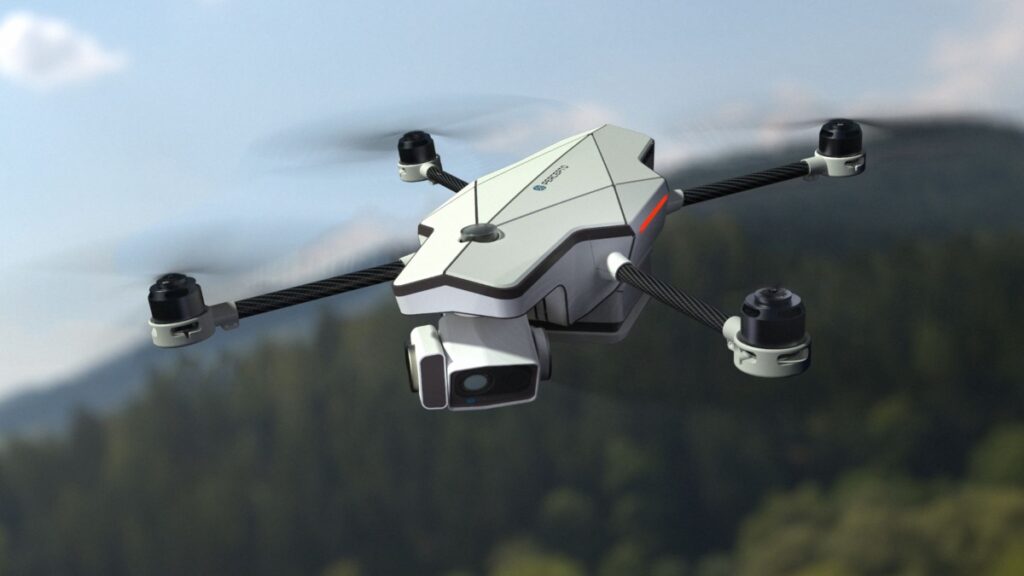
Percepto is also having a stellar 2021. In November, the company made an appearance in the artificial intelligence category of the TIME magazine list of “100 Best Inventions” of 2021 that is “changing the way we live” and “making the world better, smarter and a bit more fun.” The prestigious listing acknowledged the company for its software program Percepto AIM (Autonomous Inspection and Monitoring), which operates “the remote operation center of the future to assess risk, minimize downtime, drive efficiency, increase safety, and reduce operation costs,” Percepto said.
Just days after it received a spot on the TIME magazine list, the company announced the launch of its upgraded 2022 Autonomous Inspection & Monitoring (AIM) platform and its new Air Mobile drone. The new Insight Manager is an analytics suite that delivers AI-powered packaged solutions and data for sectors like solar, mining, energy, and oil, and can be integrated with autonomous drones and robots.
The company, known for its drone-in-a-box solutions, also introduced its new Percepto Air portfolio which includes the Air Max, a new generation of the Percepto Sparrow drone designed to operate in the largest mining, oil, gas, and energy companies with high accuracy and durability, and the Air Mobile, a new compact and lightweight model for smaller sites or organizations taking their first steps with a drone-in-the-box program or larger sites that need greater deployment flexibility. It’s ideal for linear inspections, such as pipelines and power lines, and can monitor short-term projects across multiple sites, the company has said.
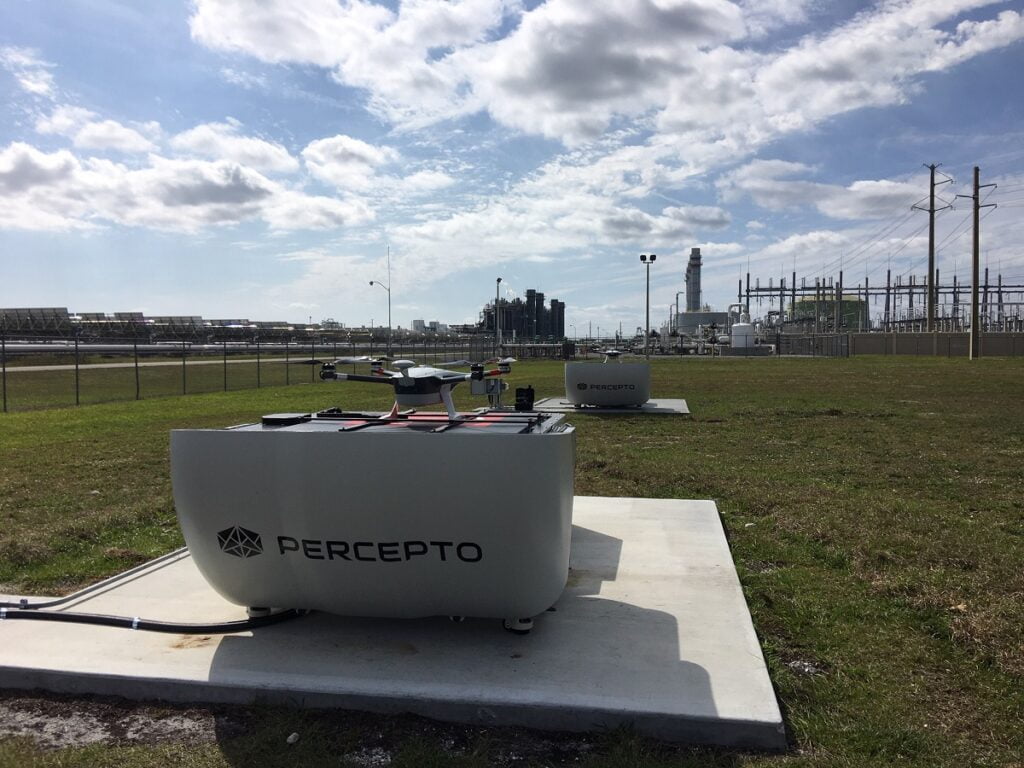
“One of the things that you get to have working with clients is that you get to understand what’s needed and what you’re going to go and do next,” Abuhasira, CEO of Percepto, tells NoCamels, “The Air Mobile is something that we realize that many of our clients need from our system for a certain period of time. Sometimes they want to move it around. We’ve been working on a more compact version of our drone for almost two years. We finally launched it this year not only for a compact solution but also to have it mobile — on the back of a truck — and to enable customers. It’s part of the way we do our software, to have the ability to get whatever data they need for whenever they need it.”
Abuhasira is looking forward to an even bigger and better year coming up. “It’s 2022,” he says, “And when you look at Percepto today, it’s very different than when we started. The company is more about technology for drones and using computer vision in various applications. And today it’s about how automation of data collection analysis or visual data collection analysis in the industrial facilities, is helping companies kind of prepare for the challenges of tomorrow in how our infrastructure and our most critical basic products have been delivered to us.”
Related posts

Editors’ & Readers’ Choice: 10 Favorite NoCamels Articles

Forward Facing: What Does The Future Hold For Israeli High-Tech?

Impact Innovation: Israeli Startups That Could Shape Our Future



Facebook comments